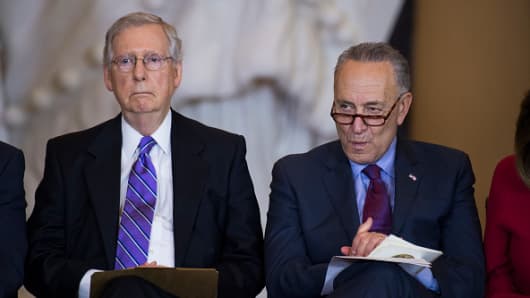Republicans have a great chance of keeping the Senate in their control with only a few days to go until Tuesday's midterm elections.
Still, Democrats have a path — though difficult and unlikely — to a majority in the chamber.
The GOP is heavily favored to hold or boost its 51-49 advantage in the Senate. Polling suggests Republicans have an edge to flip at least one Democratic seat, while the GOP either has a lead or is locked in tight races for all of the seats it will defend on Tuesday.
But a few individual contests swinging Democrats' way could drastically alter the battle for the Senate.






